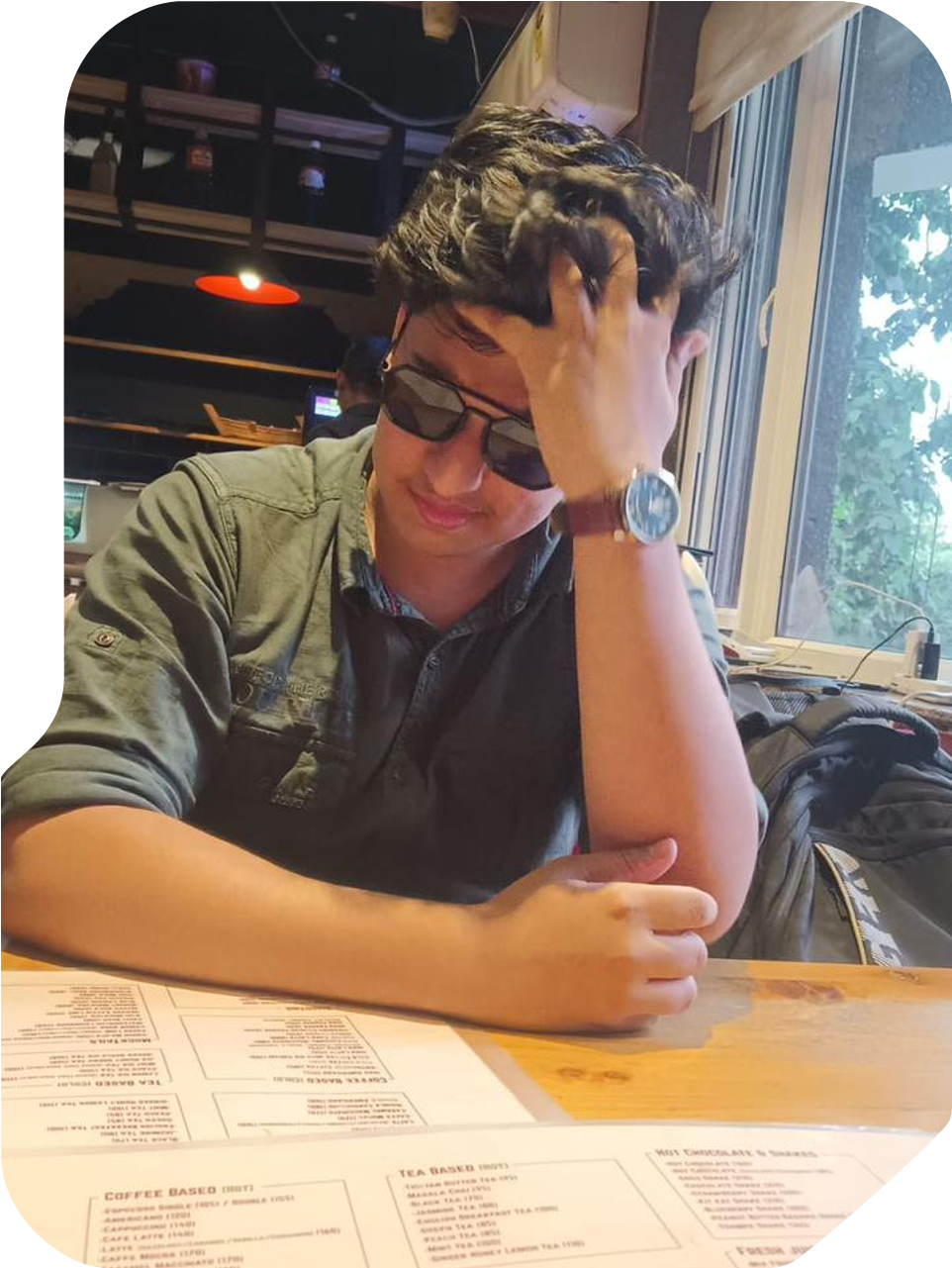Circular coding is an individual-focused competitive programming
event where participants, equating the total number of questions, take
turns tackling programming challenges within a specified duration.
This format emphasizes individual problem-solving skills, strategic
thinking, and swift algorithmic implementations. Participants rotate
through a series of tasks, with each assigned a unique question to
solve within the allotted time frame.
As questions circulate in a circular
manner, competitors must efficiently analyze problems, devise
algorithms, and implement code solutions independently. The event's
structure encourages adaptability and versatility as participants
encounter diverse challenges throughout the competition.
Ultimately,
circular coding events serve as platforms for showcasing participants'
ingenuity and programming proficiency in a challenging and
competitive environment.
Event Description:
- Participant Allocation: Each participant is assigned one programming question at the beginning of the event. The questions are distributed in such a way that every participant has a unique question to solve initially.
- Solving Phase: Participants have a fixed amount of time, typically 10 minutes, to solve the question assigned to them. During this phase, participants are expected to analyze the problem, write code to solve it, and run their solution against the provided test cases.
- Question Rotation: After the allotted time for solving elapses, all questions are rotated clockwise to the next participant in a circular manner. This means that each participant now receives a new question to solve, while the question they were previously working on moves to the next participant in the circle.
- Passing Criteria: To win a point for a particular question, the team (or participant) must submit the solution for that question within the specified time limit and pass all the test cases provided by the organizers. Only solutions that meet these criteria are eligible for points.
- Scoring: Points are awarded to the participant who successfully submits and passes the test cases for that question within their given time frame. The person that accumulates the most points by solving the highest number of questions wins the event.
- Fair Play: Participants are expected to adhere to the rules of fair play and sportsmanship throughout the event. Any form of cheating or misconduct will result in immediate disqualification from the event. give judging criteria of this event.
Judging Criteria :
- Correctness of Solutions: The primary criterion for judging the participants is the correctness of their solutions. Each solution must produce the expected output for the given input according to the problem statement. Judges will evaluate whether the code solves the problem effectively and efficiently.
- Passing Test Cases: Participants must ensure that their solutions pass all the test cases provided by the organizers. Judges will verify the submitted code against these test cases to confirm its correctness. Solutions that fail to pass the test cases will not be eligible for points.
- Adherence to Time Limits: Participants must complete their solutions within the allocated time frame for each question. Judges will monitor the timing of submissions to ensure compliance. Late submissions will not be considered for points.
- Code Quality and Efficiency: While correctness is paramount, judges may also consider factors such as code readability, efficiency, and elegance. Well-structured, optimized code may receive favorable consideration during the evaluation process.
- Problem-solving Approach: Judges may assess participants based on their problem-solving approach, including their analysis of the problem, choice of algorithm and data structures, and overall strategy.
Rules
Guidelines
- This is a 4-5 hour event.
- This event will be conducted on Hackerrank.
General Rules
- Inter-college participants are allowed
- It's mandatory for each participant to carry a College ID card for the event.
- All decisions in matters of eligibility, authenticity & marking made by the judges shall be final and binding.
- Any attempts at malpractice will lead to disqualification.
- All the event-specific rules and guidelines will be conveyed before the event.
- Organizers reserve the right to change, modify or postpone any aspect of the event without prior notice. In case of any dispute, the decision of the organizers shall be final and binding
- Participants failing to adhere to the deadlines will be disqualified
- All the participants have to reach the venue 15 min before the time.
- Each round will be an eliminatory round
Event Heads

Arham Jain
CP Head

Jatin Bhatt
DSA Head

Arnav Gupta
PR Head
FAQs
Team Size
1
Registeration Cost
Nada
What is the duration of the event?
The event will be concluded in 4-5 hours.
What type of questions will be asked in the contests?
The questions will be based on data structures and algorithms.
What will be the difficulty of the questions in the contests?
The difficulty of questions will start from easy and will get on increasing as the rounds proceed further.
How will teams be formed in the second round?
Participants will be paired randomly.
How many participants will be participating in the second round of the event?
Top 20 participants from the 3rd elimination stage of the first round will proceed to second round.
How many participants will be awarded at the end of the event?
Top 3 teams(6 participants) of the second round will be declared as winners and will be awarded.
More Events
See all events




